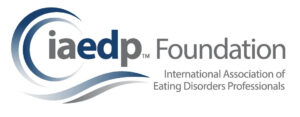Eating Disorders 101: What is Anorexia Nervosa?
Eating Disorders 101: What is Anorexia Nervosa?

January 3, 2023
Stefanie M. Lawson, MSW LCSW
The Mindfulness Space Psychotherapy Services, PLLC
According to the DSM5-TR, Anorexia Nervosa is the restriction of food energy intake relative to your body’s requirements based on age, sex, development and physical health, leading to a significantly low body weight.
Contrary to what popular culture shows us, Anorexia Nervosa, like any eating disorder, can affect anybody regardless of age, race, gender, or socioeconomic status.
Read more below…
Anorexia can include an intense fear of gaining weight, even though clinically, one may be significantly or even dangerously underweight, effecting physical health. There is often emotional distress associated with the way one’s body weight or shape is experienced that leads to negative self-over evaluation of the body, or even denial of symptoms. There are also persistent behaviors that interfere with weight gain; and a disturbance in self-perceived weight or shape. The individual maintains a body weight that is below a minimally normal level for age, sex, developmental trajectory, and physical health.
Subtypes Include:
F50.01 Restricting type: During the last 3 months, the individual has not engaged in recurrent episodes of binge eating or purging behavior (i.e., self-induced vomiting or the misuse of laxatives, diuretics, or enemas). This subtype describes presentations in which weight loss is accomplished primarily through dieting, fasting, and/or excessive exercise.
F50.02 Binge-eating/purging type: During the last 3 months, the individual has engaged in recurrent episodes of binge-eating or purging behavior (i.e., self-induced vomiting or the misuse of laxatives, diuretics, or enemas).
Development and Course
Anorexia nervosa commonly begins during adolescence or young adulthood. It rarely begins before puberty or after age 40, but cases of both early and late onset have been described. The onset of this disorder is often associated with a stressful life event.
Older individuals are more likely have a longer duration of illness, and their clinical presentation may include more signs and symptoms of long- standing disorder. Clinicians should not exclude anorexia nervosa from the differential diagnosis solely on the basis of older age.
Some Medical Diagnostic Markers
Individuals with anorexia nervosa may have laboratory abnormalities, such as, Leukopenia, milld anemia, thrombocytopenia and, rarely, bleeding problems. Dehydration may be reflected by an elevated blood urea nitrogen level. Hypercholesterolemia is also common. Hepatic enzyme levels may be elevated.
Self-induced vomiting may lead to metabolic alkalosis (elevated serum bicarbonate), hypochloremia, and hypokalemia; laxative abuse may cause a mild metabolic acidosis. Serum thyroxine (T4) levels are usually in the low-normal range; triiodothyronine (T3) levels are decreased, while reverse T3 levels are elevated.
Females may have low serum estrogen levels, whereas males have low levels of serum testosterone. Sinus bradycardia is common, and, rarely, arrhythmias are noted. Low bone mineral density, with specific areas of osteopenia or osteoporosis, is often seen. The risk of fracture is significantly elevated. Electrolyte abnormalities are frequently observed, as well as complaints of constipation, abdominal pain, cold intolerance and lethargy.
Some individuals develop lanugo, a fine downy body hair due to malnutrition. Some develop peripheral edema, especially during weight restoration or upon cessation of laxative and diuretic abuse. Many individuals also develop a yellowing of the skin associated with hypercarotenemia.
Note that this is not a complete list of medical complications. For a full list of medical diagnostic markers, please refer to the DSM5-TR.
Suicidality and Risk
Anorexia Nervosa was research to be one of the most fatal psychiatric diagnosis. According to the DSM 5 TR, suicide risk is elevated in anorexia nervosa, with rates reported to be 18 times greater than in an age- and gender-matched comparison group during a research study. A systematic review found that suicide is the second leading cause of death in anorexia nervosa.
Causes of Anorexia Nervosa
Causes of Anorexia Nervosa are often, but not always, associated with a stressful life event or trauma where restrictive eating patterns can be an attempt to “regain control” over one’s life. Risk factors can include environmental factors such as cultural influences or “ Fat phobia”, social or occupational settings were thinness is valued, or any external environmental influence that leads to overly restrictive eating habits.
Treating Anorexia Nervisa
Treatment recommendations for Anorexia Nervosa include inpatient hospitalization or partial hospitalization for severe cases in order to treat any medically related complications of this diagnosis. Follow ups with a registered dietitian are important to provide clients with nutritional counseling and develop an appropriate wellness plan to help with recovery. Outpatient or group therapy with a licensed therapist can be helpful in uncovering and addressing the underlying factors that contribute to the development of eating disorder and assist in maintaining recovery.
It’s very important for us to remember that just because somebody does not meet all the criteria for Anorexia Nervosa in the DSM5-TR, does not mean that they do not have a serious eating disorder that requires treatment.
The American Psychiatric Association state that Atypical Anorexia was removed in order to “increase clarity and avoid misclassification.”
Want to learn More? Read Eating Disorder 101: What is Bulimia Nervosa?
Need Support with Anorexia and live in North Carolina?
The Mindfulness Space, in Greensboro North Carolina, offers psychotherapy services in order to support clients with restrictive eating disorders like Anorexia Nervosa throughout their journey to recovery!
Schedule your free 30 minute consultation today!
Sign up for our Newsletter!
Are you a provider? Join the email list to sign up for our newsletter today! By signing up, you agree to join The Mindfulness Space’s email list and receive periodic communication with us via newsletter. (See website privacy and terms of use here.) Don’t worry, we won’t spam your inbox! Sign up today! Sign up here!


